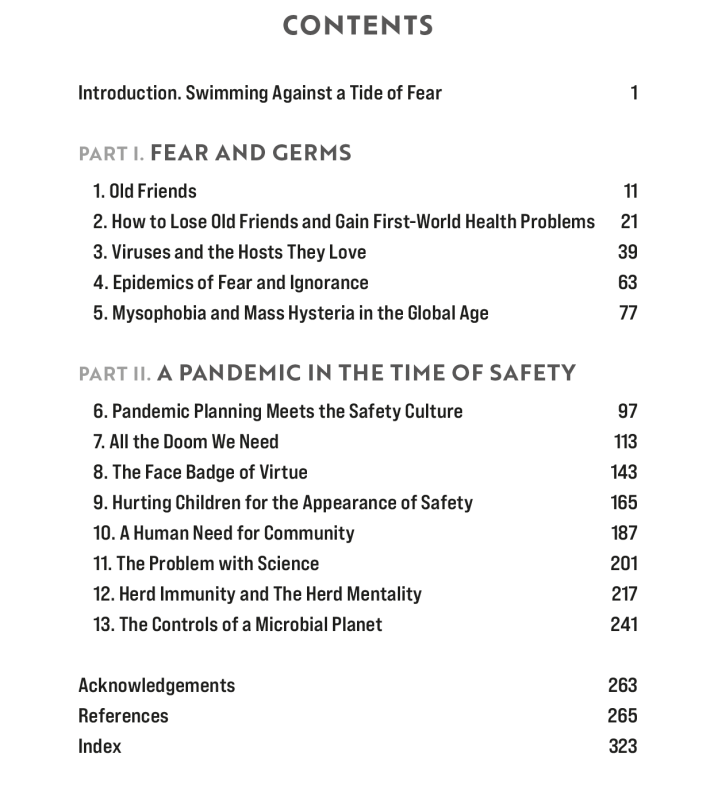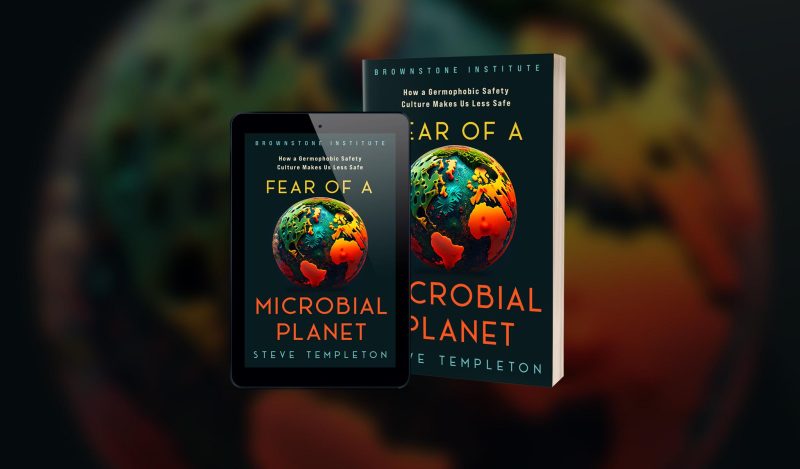Fear of a Microbial Planet, a wonderfully accessible book on the Covid era now published by Brownstone institute, offers desperately needed clarity and science on the organization and management of individual social life in the presence of pathogenic infection. It can be read as a definitive answer to expert arrogance, political overreach, and population panic.
For three years following the arrival of the virus that causes Covid, the dominant response from governments and the public has been to be afraid and stay far away through any means possible. This has further mutated into a population-wide germophobia that is actually being promoted by elite opinion.
Steve Templeton, Senior Scholar at Brownstone Institute and Associate Professor of Microbiology and Immunology at Indiana University School of Medicine – Terre Haute, argues that this response is primitive, unscientific, and ultimately contrary to individual and public health. The most unhealthy populations are those which preserve immunological naivete in the presence of a virus that is otherwise going to circulate widely.
Dr. Templeton’s story is both scientific and highly personal, taking the reader through the basics of immune response and public health even while relaying his personal frustrations with trying to talk sense to others in senseless times.
If a public health response is like an immune response, then consider this book as immunization against germophobia, politicized science, a self-defeating safety culture, and misplaced faith in experts. Dr. Templeton is our guide to helping us gain a new and more robust understanding of the relationship between the microbial kingdom and our own lives.
The pandemic forecasts in the United States were very grim. Experts were predicting that 60-70 percent of the population would ultimately be infected resulting in over 1.5 million deaths in just a few months. People on social media were in an absolute panic. Stories about empty shelves and runs on toilet paper were everywhere. Those who tried to refute these doomsday predictions were shouted down and eventually silenced.
And yet, the science on the virus was very clear. Disease severity was age-stratified. Extreme measures would not drive it away and would cause a tremendous amount of collateral damage. Even if the worse-case scenarios were true, it was extremely important that we take measures based on evidence.
But eventually, the cry to “do something” became overwhelming, and the costs no longer mattered. Trying to calm people with wisdom about infectious disease became nearly pointless. Germophobia swept through society and political culture.
Hardly anyone wanted to hear the truth that microbes are everywhere, and they cannot be avoided. There are an estimated 6×10^30 bacterial cells on Earth at any given time. By any standard, this is a huge amount of biomass, second only to plants, and exceeding that of all animals by more than 30-fold.
To live at peace with the microbial kingdom requires trained immune systems, as George Carlin said years ago. That means exposure and the protection of normal social functioning even under pandemic conditions with a new virus.
Many books have been and will be written about pandemic response mistakes, and that’s a good thing. There can’t possibly be enough reflection on what went wrong, otherwise we will be doomed to follow the same path, or an even worse one, next time. This book argues that the safety-at-all-costs culture will continue to result in counterproductive policies until it is challenged at its root.
How did people in our communities and around the world get to the point of hysteria over a pandemic with a clear age-stratified and comorbidity-amplified mortality? Why were young and healthy people with very little risk for disease and death treated as if they were a grave danger to others?
It was always pointless to try to stop much less eradicate this virus. We’ve evolved with pathogens and need to learn to live with them without imposing mass psychological, social, economic, and public-health damage.
Everyone who panicked to the point of meltdown needs this book as a corrective. And even if you did not, everyone knows someone who did, public-health officials above all else.

Join the conversation:

Published under a Creative Commons Attribution 4.0 International License
For reprints, please set the canonical link back to the original Brownstone Institute Article and Author.









